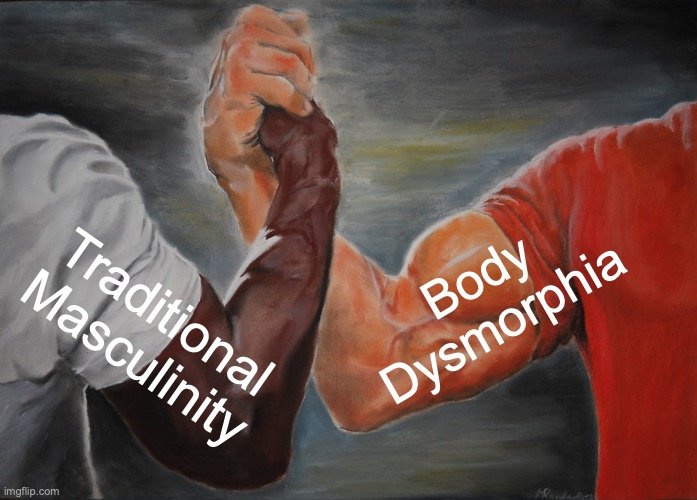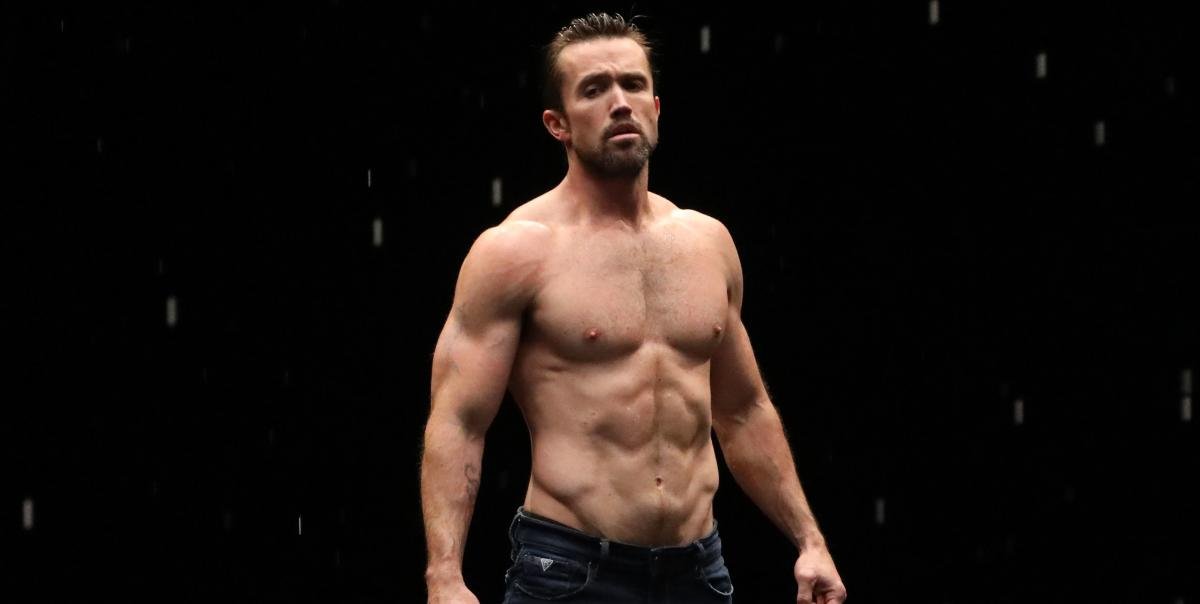the connection between traditional masculinity and body dysmorphia in men
What’s up my Hot Fat Guys, Gals, and Pals!
Let's dive into the relationship between Traditional masculinity (also referred to as Toxic Masculinity, but I fucking hate that term because it doesn’t actually mean anything) and body dysmorphia in men.
Traditional Masculinity Ideology is a cultural concept that promotes harmful stereotypes and expectations about how men should behave, look, and express themselves. This toxic culture glorifies traits like dominance, aggression, emotional stoicism, and adherence to rigid gender roles.
There are 7 Pillars of Traditional Masculinity Ideology, as defined by Dr. Ronald Levant
One of the consequences of traditional masculinity is the pressure on men to conform to certain body ideals, which can lead to body dysmorphia.
Body dysmorphia, also known as Body Dysmorphic Disorder (BDD), is a mental health condition characterized by an excessive preoccupation with perceived flaws in one's physical appearance. Men who internalize traditional masculinity ideals might develop body dysmorphia due to the constant pressure to attain an unrealistic and often unattainable body image.
This obsession with achieving the "perfect" male body – muscular, lean, and strong – can lead men with body dysmorphia to engage in risky and unhealthy behaviors, such as extreme dieting, excessive exercise, steroid abuse, and even unnecessary plastic surgery. The f***ing irony is that these behaviors often exacerbate the problem, reinforcing the belief that their bodies are never good enough.
Research has shown that the more men adhere to traditional masculinity norms, the more likely they are to experience body dissatisfaction and engage in unhealthy behaviors to achieve their perceived ideal body.
You can access this research here.
This can create a vicious cycle of gender discrepancy strain, negative body image, unhealthy behaviors, and worsening mental health.
To break this cycle, it's important to challenge and deconstruct traditional masculinity and its influence on your self-perception. Encouraging open conversations about body image, mental health, and the negative impact of toxic masculinity can help men develop healthier attitudes towards their bodies and themselves.
Keep fighting the good fight, and remember, I love you all.
Take up Space,
Alex Frankel



